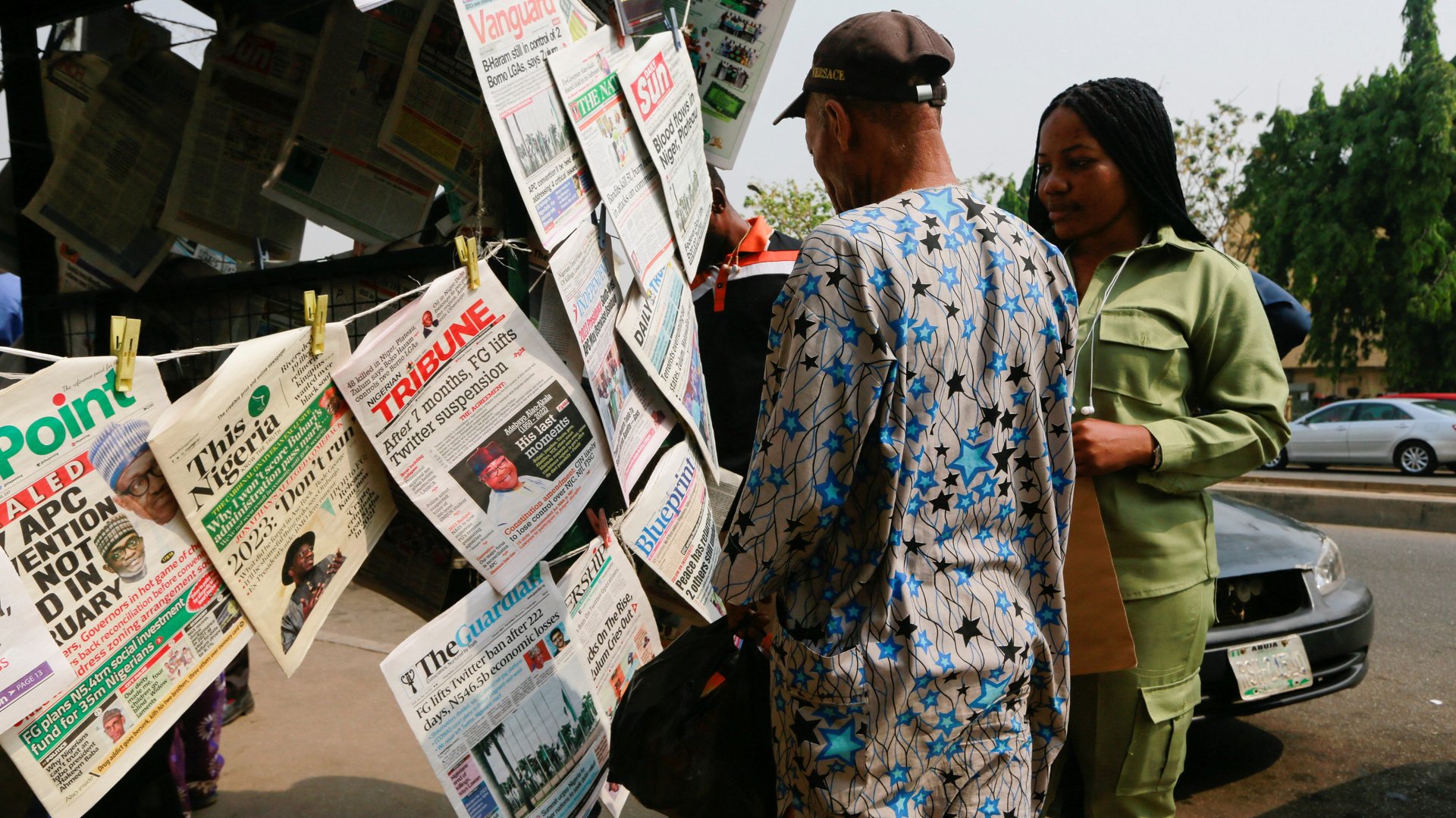Twitter must pay taxes in Nigeria after the government lifted its seven-month ban
The Nigerian government lifted its ban on Twitter today (Jan. 13), saying the social media company has agreed to register as a legal entity, pay taxes, and open a direct channel for law enforcement to complain about tweets that violate Nigerian laws.


The Nigerian government lifted its ban on Twitter today (Jan. 13), saying the social media company has agreed to register as a legal entity, pay taxes, and open a direct channel for law enforcement to complain about tweets that violate Nigerian laws.
Twitter was banned in Nigeria on June 5, 2021 after a tweet by Nigerian president Muhammadu Buhari was flagged for violating Twitter’s rules. Buhari’s government said the ban was not to retaliate but an opportunity to get the company to align with Nigeria’s national security interests.
A seven-person committee Buhari created to engage with Twitter in the aftermath of the ban led to a 20-member technical committee that engaged Twitter’s team, according to a statement by Kashifu Inuwa, a government official and chairman of the latter committee.
After seven months of talks, both parties seem to have reached a favorable compromise. Twitter said it is “deeply committed to Nigeria” and the government said the company will be able to “improve and develop more business models to cover a broader area in Nigeria.”
Twitter ban cost Nigeria over $1 billion
Nigeria’s Twitter ban started when mobile network operators like MTN and Airtel turned off access to the Twitter website. All government accounts, including those of president Buhari and his aides, went silent. Some officials migrated to Koo, a little known social media platform that operates out of India.
But because Twitter had become a major space for Nigerians to organize civic movements like #BringBackOurGirls, the 2015 elections, and EndSARS, individuals, civil society groups and even companies remained online by, in many cases, using VPNs to bypass the ban.
VPNs will no longer be necessary with the ban lifted (Windscribe, a VPN that some Nigerians used, fully expects users to abandon it.) But as was predicted at the time of the ban, there have been economic costs. A report on the cost of internet shutdowns in 2021 estimates that Nigeria lost $1.45 billion as a result of the seven-month Twitter ban, making it the second worst hit country by an internet shutdown last year. Nigeria’s loss was three times more than those of Ethiopia, Sudan, and Uganda combined.
Government says the sacrifice was worth it
Even as Buhari’s aides return with “welcome back” tweets, Nigerians are either ignoring the Twitter ban or reminding everyone that it was a wrong move in the first place.
Amnesty International insists it was illegal and “an attack on the right to freedom of expression.”
But Nigeria’s government said the “shared national sacrifice” produced “immeasurable” gains, like extracting revenue from Twitter’s operations, and reducing cybercrime. The merits of such arguments are open to debate. For now though, lifting the ban means more Nigerians can freely join online conversations around events like the Africa Cup of Nations and, more importantly, the campaign season ahead of the 2023 presidential elections.
Sign up to the Quartz Africa Weekly Brief here for news and analysis on African business, tech, and innovation in your inbox.